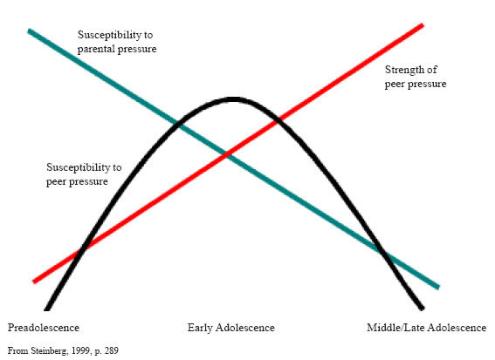| The development of self-reliance is key... When you are undecided about what to say or do in any particular situation, always ask yourself the following question: “Will this action that I'm about to take promote the development of self-reliance in my child, or will it inhibit the development of self-reliance?” If what you are about to say or do is supportive of self-reliance, then say it or do it. If it is not supportive, don’t! Things get worse before they get better... If things get worse before they get better, you are on track. But when things have been going well for several months, and then they start getting worse again -- you have forgotten to use your tools! If this happens, don’t beat up on yourself – simply get back on track by reviewing the material in your eBook. You program your kid for success or failure... Your child is like a computer, and you are the computer programmer. Your child takes your disapproval and criticism as instruction. For example, if the parent says to the child, “You’re so messy,” the criticism downloads in the child’s unconscious mind as “I am a messy person” and he acts-out the criticism as if it were instruction to be a messy. The good news is that your child takes your compliments and encouragement as instruction as well. For example, the parent’s compliment, “You do such a great job of not blowing-up when your younger brother annoys you” downloads in the child’s unconscious mind as “I am in control of my strong emotions,” and he acts on the compliment as if it were instruction to be calm even we he is annoyed. Other things to consider: 1. After issuing a consequence, never retract it. 2. Allow your out-of-control kid to make wrong choices – this gives him wisdom; experience is a great teacher. 3. Be able to differentiate between your kid’s wants and her needs. 4. Consider having only one television and one computer in the house. 5. Don’t nag – simply follow through with the consequence. 6. Don’t try to save your kid from negative consequences and painful emotions associated with poor choices. 7. Expect your out-of-control kid to resist your new parenting strategies. 8. Give equal love to all your kids, but parent them differently. 9. Give only one warning -- then follow through with the consequence. 10. Give your kid at least five chores to do each week. 11. If you have tried to correct your parent’s mistakes by attempting to be a “better” parent, know that (a) you turned out all right, and (b) you may be erring on the other end of the extreme (e.g., your parent was aggressive to you as a child, so you decide to parent in a passive, over-indulgent way). 12. If you slip into a rage against your kid, apologize - but don’t try to compensate by over-indulging him. 13. If your kid hibernates in his bedroom, take that television and computer out of there. 14. Keep an eye out for your kid’s guilt-trips. 15. Know that a weaker parenting-strategy supported by both parents – even if they are divorced -- is better than a stronger strategy supported by only one. 16. Learn to say -- and stick with -- “no.” 17. Only give your kid gifts on very special occasions (e.g., birthdays, Christmas, graduation). 18. Pay attention to your feelings of guilt about how you have parented, and know it is a sign that you are – once again – beating up on yourself. 19. Remember that over-indulged kids are too comfortable – they need some discomfort before they will change. 20. Remember that parenting is not a popularity contest – you are not a "buddy"! 21. Respond to your kid’s anger with a poker face. 22. When taking away privileges, take away the privilege for a short period (3 days works best). If it lasts too long, resentment builds, the kid forgets the infraction, and the lesson is lost. 23. When you catch yourself feeling sorry for your kid, know it is a sign that you are – once again – taking on too much responsibility. 24. When your kid needs to be cheered-up, do so with active listening, empathy, paraphrasing, validation, and hugs rather than giving her a lot of stuff and freedom (e.g., unearned privileges, food, gifts, fun activities). 25. Don't dabble with these non-traditional parenting strategies. Be consistent and you will out-will the strong-willed, out-of-control kid! Click below for Power Point Presentation (turn your speakers up) ==> Dealing With Resistance |
SUMMARY POINTS--
Instructional Video #25
Teens and Autonomy--
One of the most important tasks for all adolescents is
learning the skills that will help them manage their own
lives and make positive, healthy choices. Parents and
others can help youth develop this sense of self-
governance, responsibility, independence, and
decision-making, which are together called autonomy.
What is Autonomy?
Autonomy refers to an adolescent's growing ability to
think, feel, make decisions, and act on her or his own.
The development of autonomy does not end after the
teen years. Throughout adulthood, autonomy continues
to develop whenever someone is challenged to act with
a new level of self-reliance. Autonomy has special
meaning during the preteen and teen years because it
signifies that an adolescent is a unique, capable,
independent person who depends less on parents and
other adults.
"Although we often use the words autonomy and
independence interchangeably, in the study of
adolescence they mean slightly different things.
Independence generally refers to teens' capacity to
behave on their own. The growth of independence is
surely a part of becoming autonomous during
adolescence, but autonomy means more than behaving
independently. It also means thinking, feeling, and
making moral decisions that are truly your own, rather
than following along with what others believe."
[Steinberg, L. (1999). Adolescence (5th Ed.). Boston:
McGraw-Hill, p. 276. ]
Why is Autonomy Important?
Adolescents develop autonomy through their
relationships in their families and with people outside
of their families. Generally, during the preteen and teen
years they begin to have more opportunities to govern
their own behavior. In today's world, many adolescents
spend a great deal of time outside of direct supervision
by adults. As parents and communities struggle to meet
the demands of work and family, it is critical for
adolescents to develop healthy self-governance of their
behavior. Three types of self-governance include:
· Decision-making
· Self-reliance
· Conformity
Decision-making abilities improve as we get older.
During adolescence we become able to think in the
abstract, weigh options, and look ahead to see the
possible consequences of our actions. We begin to
recognize the value of advice from others. We also begin
to realize that advice from others may be influenced by
their personal opinions.
Feelings of self-reliance also generally increase with
age. However, there is an interesting catch: youth often
think they are acting on their own accord, but adults may
believe that a youth's decisions are being influenced by
friends.
Conformity also is an important issue during the teen-
age years. Conformity is sometimes thought of as "peer
pressure." It means following along with the behaviors or
opinions of friends or others. Youth are most prone to
peer conformity during the middle adolescent years - in
about seventh and eighth grades. Younger adolescents
are usually more influenced by parents. Peer pressure
increases as teens grow older, but eventually most teens
are less affected by peer pressure because they learn to
make decisions independently of their peers.
There are three types of autonomy:
1. Emotional Autonomy
2. Behavioral Autonomy
3. Value Autonomy
Emotional autonomy relates to emotions, personal
feelings and how we relate to the people around us.
During early adolescence, youth shift from depending
on parents to getting emotional support from others,
such as peers. At this time, youth begin to see their
parents for the first time as "real" people who have faults
and strengths. Youth become more deeply involved in
relationships with friends, and they begin to develop
intimate relationships.
When problems arise, emotionally autonomous teens
are more able to look for their own solutions or ask
friends or adults outside the family for support rather than
relying only on parents. As the figure on peer conformity
(above) shows, when adolescents begin to exert their
emotional autonomy from parents, they may rely more on
their peers than parents. This occurs during the early to
middle teenage years. By the late teenage years,
adolescents are more self-reliant and do not rely as
much on parents or peers.
Behavioral autonomy is related to behaviors. It refers to
the ability to make decisions independently and to follow
through on these decisions with actions.
As young people mature, their styles of thinking also
grow and change. They realize there are many ways to
view any situation. They begin to seek out the advice of
others and are capable of comparing one choice to
another. They also think about the results of their
decisions. They learn that everyone has their own
biases, and they start to feel more confident in their
own decision-making abilities.
As with emotional autonomy, it is important to be aware
that conforming to peer pressure by teens can
sometimes be mistaken for behavioral autonomy from
parents. Even though teens may stop asking parents for
advice, that doesn't mean they are acting on their own
accord. They may be relying on friends instead. In this
case, the teen is not being autonomous. True behavioral
autonomy requires that the teen act on her or his own,
rather than simply following along with others, whether
those others are parents or friends. Behavioral autonomy
is usually achieved between the ages of 15 and 18.
Value autonomy means having independent attitudes
and beliefs regarding spirituality, politics, and morals.
Adolescents' ability to think in the abstract helps them
see the differences between general and specific
situations, and to make judgments using higher-level
thinking. Development of value autonomy means that
teens take time to consider their personal value systems.
In this way, teens come to their own independent
conclusions about their values, rather then simply
accepting the values of their friends or values that they
were brought up to follow.


Teens and Autonomy continued...
Autonomy develops at different times for different people. Not all 15-year-olds
have the same level of behavioral autonomy. Similarly, one type of autonomy
may develop more quickly than the other type. For example, an adolescent may
be good at thinking independently, but may not feel comfortable taking action
on those thoughts.
Autonomy develops at different times for different people. Not all 15-year-olds
have the same level of behavioral autonomy. Similarly, one type of autonomy
may develop more quickly than the other type. For example, an adolescent may
be good at thinking independently, but may not feel comfortable taking action
on those thoughts.
Autonomy and Family Problems
Development of autonomy helps prepare young people to make decisions and
take care of themselves. Yet, attempts at autonomy are sometimes blamed for
fighting that goes on between parents and adolescents. For many people,
family turmoil and rebellion go hand in hand with adolescence.
For a long time, it was believed that detachment from parents was a normal
part of growing up, and that family conflict was a normal part of the teenage
years. However, research has found that most families stay close during the
teenage years. Rather than a process of separation, most families experience
a change, or transformation, in family relationships as adolescents develop a
sense of autonomy.
During this time, teenagers begin to see their parents as human, and to take
more and more responsibility for their own choices and actions. Often there are
more quarrels at this time because adolescents want more independence and
parents want more closeness and communication. Yet these arguments do
not usually lead to lasting problems.
How Can Parents Help?
· Set clear and consistent expectations. It also is important for adults and
adolescents to be open to talking about rules, and maybe revising them
together. If adults are flexible and are good listeners, adolescents will be more
likely to turn to them for advice and guidance.
· Communicate openly. As children grow up and are faced with new
decisions, there should be open family discussion about family and school
rules and values. Some rules will need to be adjusted to meet adolescents'
changing needs. Youth want and need to learn to manage their own lives, but
they also must have guidance and support from the family and community.
Talk about values with your teen, even when the topics are tough!
As autonomy develops, it is natural for adolescents to turn more to peers for
assistance, and less to parents. Adults should try not to put down or make fun
of the opinions of their teen's friends. Don't condemn teens for listening to the
advice of friends. Instead, talk about it. Ask what their friends would do in a
similar situation and why. Then encourage teens to examine the real reasons
behind a friend's opinion, and to think about the situation from different
points-of-view.
· Discourage rebellion. Teens sometimes
rebel against, or resist, parents and other forms
of authority. How can parents help avoid rebellion
in teens? The best thing to do is to talk about the
changes youth are experiencing and what these
changes mean. Through careful listening, adults
can come to a better understanding of an teen's
point-of-view, and respond in ways that youth can understand and appreciate.
Also, adults can help adolescents imagine the results, good and bad, of their
behaviors. Keep in mind that youth and adults may not see the results in the
same way. For example, to an adult, a negative judgment by a friend may not
seem like much, but to the teenager this may be a terrible thing.
· Stay calm. Don't be overly worried about teen conformity. Research
shows that adolescents turn to their peers for opinions about social matters,
but they turn to teachers and other adults when they want facts, and to parents
for advice on values, ethics, and future plans.
· Involve teens in decision-making. It is very important that parents set
firm and clear guidelines for youth. It is just as important that youth are given
chances to be a guiding force in their own lives. They need chances to
contribute in their families and communities. Let adolescents know they are
respected by inviting them to take part in family and community projects. Ask
their opinions and invite them to help with decision-making. Start with easy
tasks and allow adolescents to work toward more involvement such as
gathering information and helping to make major decisions.
Let teens make their own decisions on some things (within reason):
· After-school activities
· Bedtime
· Cleanliness and organization of their bedroom
· Clothing selection and purchasing
· Hair style
Other types of decisions are more important. Teens and adults should discuss
them together, and adults should have the final say on things like:
· After-school employment or volunteer work
· Curfew
· Dating
· Driving privileges
· Spending money
Teens can also be involved with family decisions such as:
· Meal planning
· Organizing a graduation celebration
· Planning a family vacation
· Planning family holidays
· Purchasing a family car
How Can Parents Help Teens Develop Values?
Teens soon will be on their own and faced with may difficult choices. Teens
learn best through practice. Give them chances to work through difficult
decisions before they leave home, so that they can practice while you are still
available as a safety net.
Tips to help teens develop values and morals:
· Be a warm and loving parent, but also be firm and fair, and use consistent
rules. Explain your rules, and talk with youth about discipline.
· Give adolescents increasing responsibility for decision-making and
leadership in school and in after-school activities. Follow through with their
ideas.
· Give teens a voice in community decision-making, such as appointing
teen members of coalitions and advisory groups. Let them know their help is
valued respected.
· Help youth learn about and participate in social and political events in the
community, such as election activities, rallies, marches, and peaceful protests.
· Look for chances to discuss politics, spirituality, and morals with
adolescents.
· Remember to support adolescents and thank them for what they are
doing.
· Watch for opportunities to talk about consequences of behavior, both good
and bad. Hold teens accountable when they make poor choices; allow them to
experience the connection between behaviors and consequences.
· When listening to teens' opinions, encourage them to explain the reasons
behind their opinions.
The development of autonomy - in emotions, behaviors, and values - is a basic
developmental challenge of the adolescent years. Understanding the changes
adolescents are facing will allow you to help them become happy and
productive adults.
Mark
Development of autonomy helps prepare young people to make decisions and
take care of themselves. Yet, attempts at autonomy are sometimes blamed for
fighting that goes on between parents and adolescents. For many people,
family turmoil and rebellion go hand in hand with adolescence.
For a long time, it was believed that detachment from parents was a normal
part of growing up, and that family conflict was a normal part of the teenage
years. However, research has found that most families stay close during the
teenage years. Rather than a process of separation, most families experience
a change, or transformation, in family relationships as adolescents develop a
sense of autonomy.
During this time, teenagers begin to see their parents as human, and to take
more and more responsibility for their own choices and actions. Often there are
more quarrels at this time because adolescents want more independence and
parents want more closeness and communication. Yet these arguments do
not usually lead to lasting problems.
How Can Parents Help?
· Set clear and consistent expectations. It also is important for adults and
adolescents to be open to talking about rules, and maybe revising them
together. If adults are flexible and are good listeners, adolescents will be more
likely to turn to them for advice and guidance.
· Communicate openly. As children grow up and are faced with new
decisions, there should be open family discussion about family and school
rules and values. Some rules will need to be adjusted to meet adolescents'
changing needs. Youth want and need to learn to manage their own lives, but
they also must have guidance and support from the family and community.
Talk about values with your teen, even when the topics are tough!
As autonomy develops, it is natural for adolescents to turn more to peers for
assistance, and less to parents. Adults should try not to put down or make fun
of the opinions of their teen's friends. Don't condemn teens for listening to the
advice of friends. Instead, talk about it. Ask what their friends would do in a
similar situation and why. Then encourage teens to examine the real reasons
behind a friend's opinion, and to think about the situation from different
points-of-view.
· Discourage rebellion. Teens sometimes
rebel against, or resist, parents and other forms
of authority. How can parents help avoid rebellion
in teens? The best thing to do is to talk about the
changes youth are experiencing and what these
changes mean. Through careful listening, adults
can come to a better understanding of an teen's
point-of-view, and respond in ways that youth can understand and appreciate.
Also, adults can help adolescents imagine the results, good and bad, of their
behaviors. Keep in mind that youth and adults may not see the results in the
same way. For example, to an adult, a negative judgment by a friend may not
seem like much, but to the teenager this may be a terrible thing.
· Stay calm. Don't be overly worried about teen conformity. Research
shows that adolescents turn to their peers for opinions about social matters,
but they turn to teachers and other adults when they want facts, and to parents
for advice on values, ethics, and future plans.
· Involve teens in decision-making. It is very important that parents set
firm and clear guidelines for youth. It is just as important that youth are given
chances to be a guiding force in their own lives. They need chances to
contribute in their families and communities. Let adolescents know they are
respected by inviting them to take part in family and community projects. Ask
their opinions and invite them to help with decision-making. Start with easy
tasks and allow adolescents to work toward more involvement such as
gathering information and helping to make major decisions.
Let teens make their own decisions on some things (within reason):
· After-school activities
· Bedtime
· Cleanliness and organization of their bedroom
· Clothing selection and purchasing
· Hair style
Other types of decisions are more important. Teens and adults should discuss
them together, and adults should have the final say on things like:
· After-school employment or volunteer work
· Curfew
· Dating
· Driving privileges
· Spending money
Teens can also be involved with family decisions such as:
· Meal planning
· Organizing a graduation celebration
· Planning a family vacation
· Planning family holidays
· Purchasing a family car
How Can Parents Help Teens Develop Values?
Teens soon will be on their own and faced with may difficult choices. Teens
learn best through practice. Give them chances to work through difficult
decisions before they leave home, so that they can practice while you are still
available as a safety net.
Tips to help teens develop values and morals:
· Be a warm and loving parent, but also be firm and fair, and use consistent
rules. Explain your rules, and talk with youth about discipline.
· Give adolescents increasing responsibility for decision-making and
leadership in school and in after-school activities. Follow through with their
ideas.
· Give teens a voice in community decision-making, such as appointing
teen members of coalitions and advisory groups. Let them know their help is
valued respected.
· Help youth learn about and participate in social and political events in the
community, such as election activities, rallies, marches, and peaceful protests.
· Look for chances to discuss politics, spirituality, and morals with
adolescents.
· Remember to support adolescents and thank them for what they are
doing.
· Watch for opportunities to talk about consequences of behavior, both good
and bad. Hold teens accountable when they make poor choices; allow them to
experience the connection between behaviors and consequences.
· When listening to teens' opinions, encourage them to explain the reasons
behind their opinions.
The development of autonomy - in emotions, behaviors, and values - is a basic
developmental challenge of the adolescent years. Understanding the changes
adolescents are facing will allow you to help them become happy and
productive adults.
Mark





Can't see the video? CLICK HERE